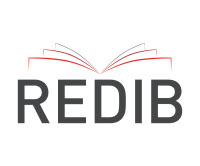ORALITY AND WRITING IN PRODUCTION OF NARRATIVE TEXTS OF STUDENTS OF JUNIOR MIDDLE EDUCATION.
DOI:
https://doi.org/10.21680/1517-7874.2018v20n2ID15422Abstract
This paper analyses the presence of orality resources in narratives written by sixth degree in the Junior High School degree and how such resources can be handled to facilitate the mastering of the written production, through retextualization and rewriting. The theoretical basis is founded on the bakhtinian conception of language, on Geraldi's teses and arguments (2012, 2013) proposal of an interaction between reading, writing and linguistic analysis, on the studies on textual formulation of orality and writing presented by Marcuschi (2003, 2007, 2008, 2010) and on Belintane's (2013) research on the influence of oral tradition in the process of literacy and written production. To materialize this research, we chose a 6th degree class in a public municipal school in Uberaba, Minas Gerais. Basically, the method used in the production and selection of the data is the indiciary, for it allows us to have a perception of the linguistic detail that defines the presence of orality in the written narratives. The intervention proposal aimed at the teaching of writing lasted one semester. In the first step, presented and analyzed in this article, the oral narrative served as the basis for the construction of a written account. In the possession of this production, we proceeded to the analysis, defining the indications of orality in the written narratives and the planning of a sequence of pedagogical activities, composed of a comparative study of the two modalities, retextualization of an oral text, rewriting of small sections of class texts , study of some cases of punctuation and spelling, concluding it with the rewriting of the first text by the student himself.
Downloads
Downloads
Published
How to Cite
Issue
Section
License

Este trabalho foi licenciado com uma Licença Creative Commons - Atribuição - NãoComercial - CompartilhaIgual 3.0 Não Adaptada.

 Português (Brasil)
Português (Brasil) English
English Español (España)
Español (España)









.jpg)




